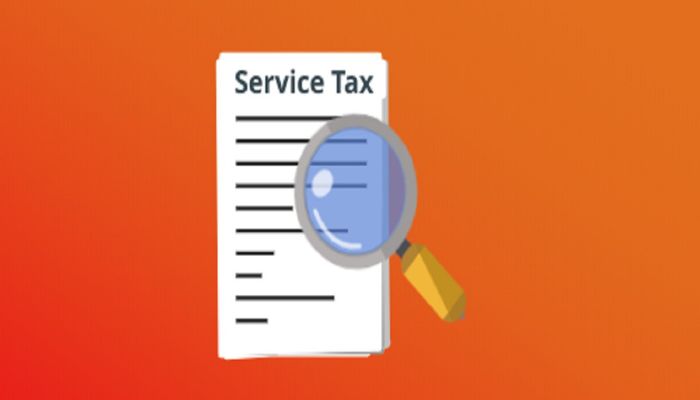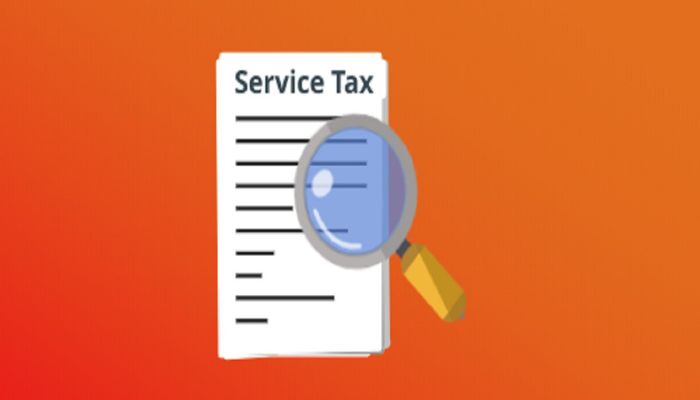Invalid service tax demand solely based on Form 26AS without investigation.
In a recent legal saga, the CESTAT, Kolkata, delivered a game-changing verdict in the case of M/s. Piyush Sharma v. Commissioner of CGST & CX, Patna-I. The ruling, dated October 17, 2023, shook the foundations of service tax demands based solely on Form 26AS from the Income Tax Department, asserting that such demands without a thorough investigation are deemed invalid. This article navigates through the intricacies of this landmark decision and sheds light on its implications for businesses.
| Table Section |
| 1. Introduction |
| 2. The Case Unveiled |
| 3. Key Findings Echoed by the Court |
| -3.1 Registered Service Provider Shield |
| -3.2 Extended Limitations and Valuation Rules |
| -3.3 Sustainability Criteria |
| 4. Implications for Businesses |
| - 4.1 Fortify Documentation Practices |
| - 4.2 Proactive Cooperation During Investigations |
| -4.3 Strengthen Legal Compliance Measures |
| 6. Conclusion |
The Case Unveiled:
M/s. Piyush Sharma, a service provider to telecommunication giants, found themselves in the crosshairs of a service tax demand. The trigger? Form 26AS from the Income Tax Department, pointing fingers at a substantial sum received by the appellant. This led to a show cause notice, contestations, and ultimately, a legal battle.

Key Findings Echoed by the Court:
1. Registered Service Provider Shield: The court's keen observation emphasized the appellant's status as a registered service provider diligently filing Service Tax returns. Crucially, no investigation had been conducted by the Adjudicating Authority, leading the court to declare demands based solely on Form 26AS as lacking validity.
2. Extended Limitations and Valuation Rules: The legal battle showcased the invocation of an extended period of limitation, with a portion of the demands stretching beyond the standard five-year window. The court emphasized that demands exceeding this timeframe must align with the Valuation Rules of 2006, underscoring the need for meticulous scrutiny.
3. Sustainability Criteria: Perhaps the most impactful pronouncement was the court's assertion that an extended period of limitation was inapplicable. Moreover, it categorically stated that demands based solely on Form 26AS weren't sustainable against the appellant. This solidifies the need for a robust investigation to validate service tax demands.
Implications for Businesses:
1. Fortify Documentation Practices:
The case underscores the paramount importance of maintaining meticulous records, including work orders, payment details, and invoice copies. A well-documented trail is a potent defense against demands based on incomplete information.
2. Proactive Cooperation During Investigations:
The ruling spotlights the pitfalls of non-cooperation during investigations. Businesses are urged to actively engage with authorities, presenting a comprehensive overview of their financial transactions to prevent adverse outcomes.
3. Strengthen Legal Compliance Measures:
Businesses subject to service tax demands must prioritize strict adherence to legal compliance. Timely filing of returns and accurate record-keeping are pivotal in warding off demands lacking a solid investigative foundation.
(FAQs)
1. What does the recent CESTAT ruling signify for businesses facing service tax demands based on Form 26AS?
The CESTAT ruling signifies a paradigm shift, declaring that service tax demands solely based on Form 26AS from the Income Tax Department without a thorough investigation are deemed invalid. Businesses should take note of the importance of a robust investigation in validating such demands.
2. Why was the appellant, M/s. Piyush Sharma, able to challenge the service tax demand in this case?
M/s. Piyush Sharma, being a registered service provider consistently filing Service Tax returns, was able to challenge the demand because no investigation had been conducted by the Adjudicating Authority. The court emphasized the significance of their registered status in questioning the validity of the demand based solely on Form 26AS.
3. How does the ruling address the issue of an extended period of limitation in service tax demands?
The court ruled that an extended period of limitation was not applicable in this case. It underscored that demands exceeding the standard five-year window must adhere to the Valuation Rules of 2006. This highlights the need for a meticulous examination of timelines and regulatory compliance.
4. Can businesses use this ruling as precedent in other service tax cases?
While specific legal cases may vary, businesses can leverage this ruling as a precedent, especially if they are registered service providers with a consistent record of filing Service Tax returns. The ruling emphasizes the importance of a proper investigation in validating service tax demands.
5. What are the key implications for businesses arising from this ruling?
The ruling underscores the importance of meticulous documentation, active cooperation during investigations, and strict adherence to legal compliance measures. Businesses should be proactive in presenting a comprehensive view of their financial transactions to safeguard against potentially invalid demands.
6. How should businesses respond if they are currently facing service tax demands based on Form 26AS?
Businesses facing such demands should prioritize building a strong case by fortifying their documentation practices. This includes maintaining detailed records of work orders, payment particulars, and invoice copies. Additionally, active cooperation during investigations and strict adherence to legal compliance measures are crucial in navigating these challenges successfully.
7. Does this ruling have broader implications for taxation practices beyond service tax demands?
While the ruling specifically addresses service tax demands, its principles of requiring a thorough investigation and documentation can have broader implications for taxation practices. Businesses across various tax categories can benefit from adopting a proactive and transparent approach in their dealings with tax authorities.
8. How can businesses ensure they are well-prepared for potential tax-related challenges following this ruling?
Businesses can prepare for potential tax-related challenges by adopting a proactive stance. This includes maintaining up-to-date and comprehensive documentation, actively engaging with investigating authorities, and ensuring strict adherence to legal compliance measures. Being well-prepared minimizes the risk of facing demands solely based on incomplete information.
9. Are there any specific recommendations for businesses to navigate the evolving landscape of taxation post this ruling?
In light of this ruling, businesses are advised to stay informed about changes in tax regulations and legal precedents. Proactively adapting their practices to align with evolving standards, fortifying documentation procedures, and fostering a cooperative relationship with tax authorities can help them navigate the ever-changing landscape of taxation effectively.
10. Does this ruling highlight the need for a collaborative approach between businesses and tax authorities?
Yes, the ruling underscores the importance of a collaborative approach between businesses and tax authorities. Active cooperation during investigations is crucial for presenting a comprehensive view of financial transactions. Businesses are encouraged to engage transparently with tax authorities to build a strong case and avoid adverse outcomes.
Conclusion:
In the dynamic landscape of taxation, the CESTAT's decision serves as a wake-up call for businesses. The era of relying solely on Form 26AS for service tax demands is now challenged. Navigating these waters requires businesses to fortify documentation practices, actively cooperate during investigations, and, above all, prioritize stringent legal compliance measures. The path to safeguarding against potentially invalid demands is paved with a proactive approach and a commitment to transparency.
Ex. TOI Editor
I'm Supriya Dutt, and I'm not just a blogger; I'm a storyteller with an unending love for Bihar. Bihar is not just my home; it's my muse. I was born and raised in the heart of this culturally rich state, and that's where my journey as a writer began.My passion is to share the beauty and depth of Bihar through my words. Bihar isn't just a place; it's a treasure trove of history, traditions, and untapped potential. Through my blog, BiharLinks.com, I aim to change perceptions and uncover the hidden gems of Bihar.


